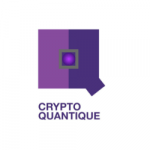Nikkei: 12 Japanese Companies to Jointly Use IBM Quantum Computer to be Installed at Kawasaki Business Incubation Center

(NikkeiAsia) A group of Japanese companies will begin using an IBM quantum computer at the end of July, Nikkei has learned.
Toyota, Mitsubishi Chemical, and 10 other companies plan to jointly use an IBM quantum computer which will be installed at the Kawasaki Business Incubation Center (KBIC) in Kanagawa Prefecture southwest of Tokyo. The system, which is scheduled to be up and running by the end of July, is based on a “gate model,” meaning that it is highly versatile and has many potential applications.
The system will be used by Japan’s Quantum Innovation Initiative Consortium. The consortium, with members that include Toyota, Hitachi, Toshiba, and Sony Group, was formed last year with the goal of accelerating research and development in the country that takes advantage of quantum computing.
Outside of the U.S., Japan is the second location to have an IBM quantum computer installed, after Germany.
Germany Aims to Build Quantum Expertise with New IBM System One
Typically, it costs billions of yen, or tens of millions of dollars, to install a quantum computer. Members of the consortium will share the cost of installation.
The system will be used by Japan’s Quantum Innovation Initiative Consortium, led by the University of Tokyo. The consortium, with members that include Toyota, Hitachi, Toshiba, and Sony Group, was formed last year with the goal of accelerating research and development in the country that takes advantage of quantum computing.
Quantum computers are also good at finding solutions to puzzles from among a huge number of potential combinations.
Quantum computers are expected to eventually be able to perform near instantaneous calculations that would take even the fastest supercomputers hundreds of millions of years to complete. Taking advantage of this blinding speed could give Japanese companies an edge in R&D and enhance Japan’s industrial competitiveness.
As quantum computers evolve, they could also be used to decrypt the codes that underpin internet communications, which would have major implications for national security.



















